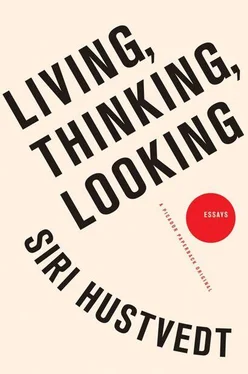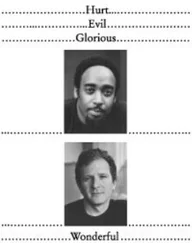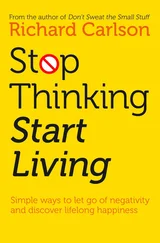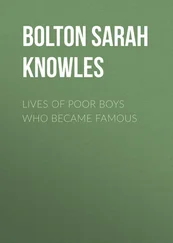(my translation)
2009
THERE IS A DISTANCE TO fatherhood that isn’t part of motherhood. In our earliest days, fathers are necessarily a step away. We don’t have an interuterine life with our fathers, aren’t expelled from their bodies in birth, don’t nurse at their breasts. Even though our infancies are forgotten, the stamp of those days remains in us, the first exchanges between mother and baby, the back-and-forth, the rocking, the soothing, the holding and looking. Fathers, on the other hand, enter the stage from elsewhere. As the psychoanalyst Jessica Benjamin points out, fathers are exciting, and their play is usually different from that of mothers and more arousing to the infant. Fathers are often the ones who introduce “jiggling, bouncing, whooping.” 1I vividly recall my own baby’s joyous face as she straddled her father’s jumping knee. He regularly turned her into “Sophie Cowgirl,” and the two took wild rides together as my husband provided the shoot-’em-up sound effects. I cannot remember bouncing on my father’s knee, but I can recall the noise of the door opening, his footsteps in the hall, and the intense happiness that accompanied his homecoming. Every day for years, my three sisters and I greeted our father as if he were a returning hero, running to the door, shrieking, “Daddy’s home!” We were only daughters in my family. The boy never arrived, and I have often thought that in the end, his absence served us all, including my father, whose relationship with a son would have been colored by an intense identification he didn’t have with his daughters. I think that was oddly liberating. My sisters and I were born into a culture that didn’t expect great ambition from girls. The irony is that because we didn’t have to share our father with a brother, our interests were able to bloom. A boy would inevitably have felt more pressure from both his parents to become someone, but I feel sure we would have envied that pressure, nevertheless.
God the father, land of our fathers, forefathers, Founding Fathers all refer to an origin or source, to what generated us, to an authority . We fall into the paternal line. Patronymic as identity. I have my father’s name, not my mother’s. I didn’t take my husband’s name when I married, but the symbolic mark of paternity is inscribed into the signs for me: Siri Hustvedt. We were called “the Hustvedt girls” or “the Hustvedt sisters” when we were growing up, four apples from the same tree. The father’s name is the stamp of genealogy, legitimacy, and coherence. Although we know when a woman gives birth that she is the child’s mother, the father’s identity can’t be seen . It’s hidden from us in the mysteries of the bedroom where potentially clandestine unions with other men might have taken place. In Judaism, this difficulty is circumvented by establishing Jewish identity through the mother, the known origin, not through the far less certain one: the father. Doubt or confusion about paternal identity and the scourge of illegitimacy have been the stuff of literature in the West since the Greeks. In the Oedipus story, the hero commits patricide and incest accidentally, but once the crimes are known, the world’s foundations shake. The virgin birth in Christianity is the ultimate evocation of paternal mystery, for here the progenitor is God himself, the Holy Spirit, who by means beyond human understanding has impregnated a mortal woman. Edmund in King Lear bemoans his fate as illegitimate son, “Why brand they us with base? With baseness? bastardy?” But Edmund’s treachery is part and parcel of his position as an outsider, a child born from the right father but the wrong mother — a crooked line. Charles Dickens populated his books with illegitimate children and articulated and rearticulated the drama of fatherlessness as a nullity to the self and to others. The illegitimate Arthur Clennam in Little Dorrit is repeatedly referred to as “Nobody.” In another pointed passage in the same novel, when asked about the mysterious Miss Wade, Mr. Pancks answers, “I know as much about her as she knows about herself. She is somebody’s child — anybody’s — nobody’s.” 2Without an identifiable past, the route to self-knowledge has been closed. The father’s power to name fixes and defines us in a relation that allows us to become somebody, not nobody. This is the source of Jacques Lacan’s famous pun on the dual symbolic role of the father. He names and he sanctions: le nom de père and le non de père .
When I was a child, Father Knows Best was on television. This benign series evoked an orderly family, which is to say everyone in it knew his or her place in the hierarchy. Every week, the structure was rattled by a minor storm, which then passed over. I am sure that the mythical dads of that postwar era mingled with my internal fantasies about my own father. They weren’t despots, but they were in charge, and they had the last word, the ideal fathers of a period that was invested in reestablishing a familial order that had been dismantled during the war when the fathers of many American children were overseas. My father wasn’t a disciplinarian, but he had an unchallenged, unspoken authority. Even a hint of anger or irritation from him was enough to mortify me. Those occasions were rare, but the power of paternal sanction ran deep. I wanted so much to please him. I wanted to be good.
It has been said, and it is true—
And this is real pain,
Moreover. It is terrible to see the children,
The righteous little girls;
They expect to be so good … 3
That is how George Oppen ends his poem “Street,” and for me the last two lines have always had the force of a blow. I was a righteous little girl.
They are so delicate, these attachments of ours, these first great passions for our parents, and I have often wondered what would have become of me had my father used his power differently. In the hospital where I teach a weekly writing class to psychiatric patients, I have listened to many stories about fathers — violent fathers, runaway fathers, seductive fathers, negligent fathers, cruel fathers, fathers who are in prison or dead of drink or drugs or suicide. Shameful fathers. These are the paternal characters that fuel the stark narratives of “abuse” that people in our culture gulp down so eagerly. It is simple then to create cause and effect, to eliminate all ambiguity, to ignore the particulars of each case, to march down the road of moral outrage. There are brutal stories. We have all heard them, but there are also subtler forms of paternal power that create misshapen lives. I think of a man like the father in Henry James’s Washington Square, Dr. Sloper. He intervenes when he understands that the young man courting his daughter, Catherine, is a fortune hunter. His assessment is by no means wrong, and his desire to protect his child is eminently reasonable, but beneath his acumen lurks not only coldness to his offspring but an ironic distance that borders on sadism. In a remarkable exchange between Sloper and his sister, they discuss Catherine’s decision not to marry her beau immediately but to wait in the hope that her intractable father will change his mind.
“I don’t see that it should be such a joke that your daughter adores you.”
“It is the point where the adoration stops that I find interesting to fix.”
“It stops where the other sentiment begins.”
“Not at all — that would be simple enough. The two things are extremely mixed up, and the mixture is extremely odd. It will produce some third element, and that’s what I’m waiting to see. I wait with suspense — with positive excitement; and that is a sort of emotion that I didn’t suppose Catherine would ever provide for me. I am really very much obliged to her.” 4
Читать дальше












